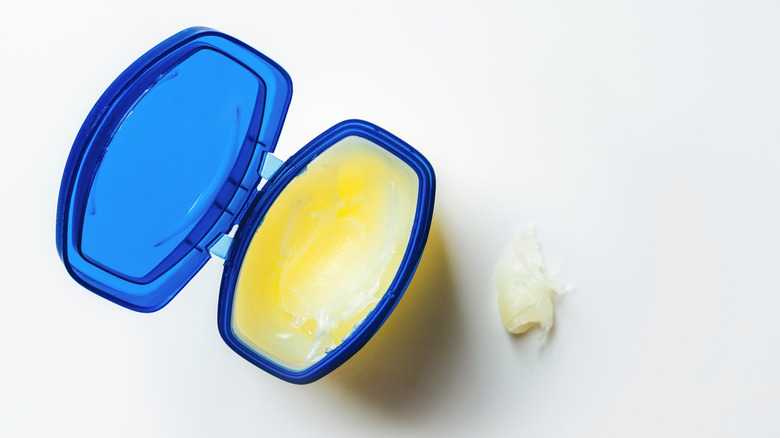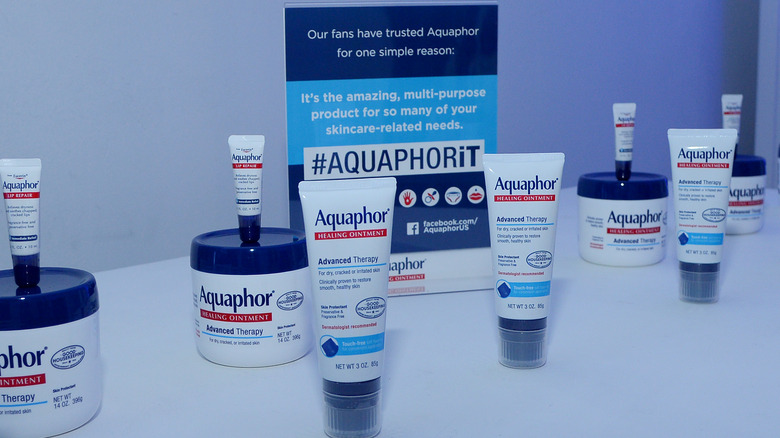Aquaphor Vs. Vaseline: What's The Difference?
Everyone has their thing when it comes to quick, easy fixes for small problems. For some, it's Vaseline, which fixes everything from chapped lips to chafed skin, conditions your lashes, and likely has many uses in your beauty routine. Others prefer to use Aquaphor as a fix-it cream for similar problems, and is a go-to when skin feels particularly parched and dry. But are they the same thing?
Vaseline has been around for more than 140 years, according to Healthline, and is one of the most popular brands of petroleum jelly (a blend of minerals and waxes) on the market today. Vaseline is an occlusive, which means the jelly does two things: It keeps your skin soft by trapping moisture on its surface, and protects injured skin from getting irritated because it acts as a barrier. Its quality as a protective barrier is what makes Vaseline a great go-to to help you heal cuts and scrapes, fix chapped lips, and even treat minor skin problems like rosacea and psoriasis, both conditions that can leave the skin feeling raw or dry. But while some of us might turn to Vaseline for sunburn relief, Healthline advises against using the salve to help soothe sunburns, because while it seals in moisture, Vaseline can also seal in heat generated by sunburned skin, making the symptoms worse.
Aquaphor is a powered-up Vaseline
Aquaphor, on the other hand, is marketed as a "healing ointment" and is made with a blend of petroleum jelly (what Vaseline is made of), mineral oil, glycerin, and lanolin, and its fans swear by the cream's healing properties. Because Aquaphor has ingredients other than petroleum jelly, its essentially an emollient, or a powered-up, moisturizing Vaseline (which can only seal skin so it can retain moisture that's already there). Shari Marchbein, a board-certified dermatologist and assistant professor at the NYU School of Medicine says Aquaphor can act as a rich moisturizer which "helps soften and smooth the skin and create an occlusive protective barrier on the surface to seal in moisture" (via Allure).
Dr. Debra Jaliman calls Aquaphor her go-to pick as a wound care treatment — she has been recommending the cream to patients for three decades (via Harper's Bazaar). From a strictly cosmetic standpoint, both Vaseline and Aquaphor work well as makeup removers, a cuticle cream, and — in Vaseline's case — an anti-aging product, because it increases the amount of peptides on your skin. However, if it's a moisturizer you're looking for, skip the Vaseline and reach for the Aquaphor.

